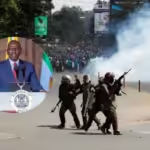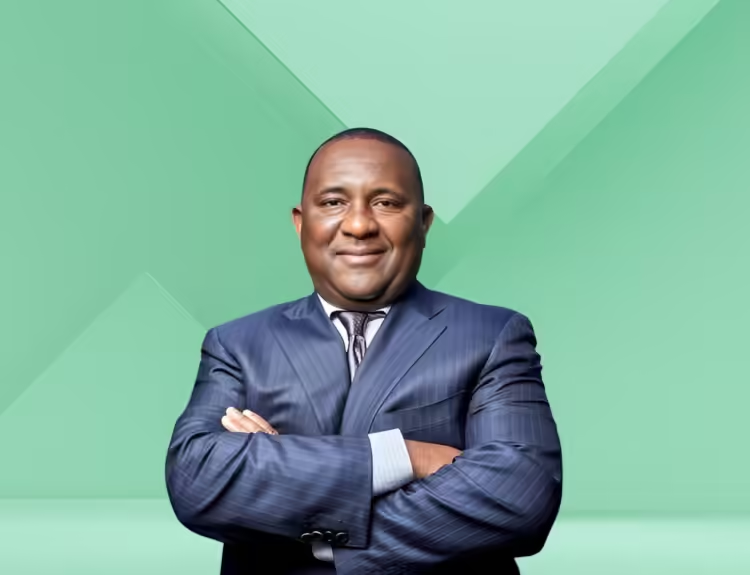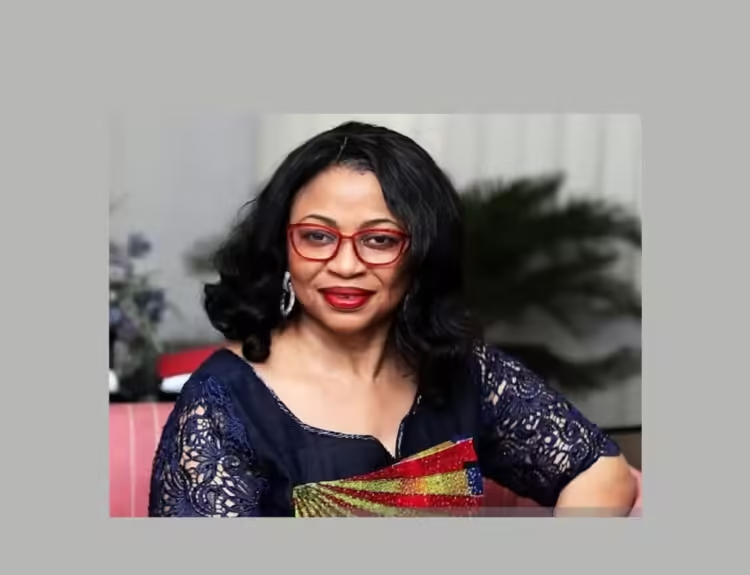Adrian Gore was always passionate about being healthy and fit. While he was not initially keen on turning that into a business, his love for math, passion for fitness and health, and desire to help his community culminated in the creation of Discovery Limited, a health insurer that he later grew into a global financial giant.
The tycoon believes that his success is more attitudinal than behavioural. Gore claims that the most important driving forces of his success are positivity and optimism.
“I believe positivity is the most important attribute of success, as you have to essentially believe that there is a future and that there is something to achieve in that future. When you are negative, you make the wrong decisions based on your fears,” he said in a past interview.
That said, he also believes in working hard and pushing the people around him to give their best.
The tycoon, an avid promoter of healthy living, spares at least ten minutes every day for a short, intense workout in his office just to keep fit.
In a past interview, he claimed that he was known as “the fire escape runner.” This nickname is an ode to his tendency to seek out a fire escape wherever he goes so that he can run up and down the stairs for five to ten minutes.
“When I am sitting on a conference call, I’ll do some curls and a few squats. You feel infinitely better. So, it has been an absolute tonic for me. It helps me keep the balance,” he shared.
All these factors together are what have made Gore a business magnate worth about $600 million from a teenager who had no idea what to do with his life.
Early life and education
Gore was born in Johannesburg, South Africa, in 1964. He grew up in a very traditional middle-class Jewish family. His father was a “reluctant entrepreneur,” according to him, but generally, his was a knowledge-centric family. In a past interview with MBA.co.za, the tycoon said his parents believed learning was more important than money. In fact, Gore’s mother believed money was inherently bad.
He loved math, which perhaps inspired his choice to pursue actuarial science at the University of Witwatersrand. There, he developed finance management skills and an appreciation for institutional scale, which complemented his entrepreneurial mindset.
In 1990, he was admitted as a Fellow of the Faculty of Actuaries (Edinburgh), and in 1992, he was admitted as an associate of the Society of Actuaries (Chicago) and also became a Member of the American Academy of Actuaries. Later in 2017, the mogul was awarded an honorary doctorate in economics from the University of the Witwatersrand, Johannesburg.
Career
After earning a Bachelor of Applied Science degree in 1986, Gore joined Liberty Life, an insurance and investment firm founded by South African entrepreneur Donald Gordon.
Liberty was one of the companies that started providing medical cover at a time when medical cover was historically provided by medical aid societies. Gore worked in product development at the company and helped come up with some of its health insurance products.
“I was so gifted with that exposure, working with and learning from some incredible people at Liberty. It gave me the understanding of what big institutional business can do, and at 25, I knew I wanted to build something like that,” Gore told mba.co.za.
His time at the insurance firm inspired Gore to start his own health insurance company. He approached Rand Merchant Bank for seed capital. In 1992, with the backing of the bank, he set up Momentum Health, which was later renamed Discovery Health and listed on the Johannesburg Stock Exchange in 1997.
He started with just a chair, a desk, and a PA. “The whole thing was institutional from the start. That’s why it scaled because it was never a small business but a big business with one person,” Gore said.
“Because of my training, I had an understanding of how to build an insurance organization, the distribution challenges, how insurance is sold, not bought, how the structures had to be done,” he added.
Shortly after beginning operations, he brought Barry Swartzberg, whom he had worked with at Liberty, and together they carved out a niche in the medical insurance scene. The pair came up with the innovative idea of medical savings accounts. This meant that their clients would get back the money they did not spend on claims.
Discovery set itself apart from medical aid societies and other health insurers by proactively promoting healthy living. The company has perfected the art of incentivizing a healthy lifestyle, which in turn brings the cost of care down. They stumbled on this idea during a meeting with an ex-director of the old Health and Racquet Group. They realized they could tap into the gym-going market base by offering people on Discovery free access to gyms.
“Little did we know we stumbled onto what has now become a profound issue of how you incentivize lifestyle change, offering people rewards for keeping healthy,” Gore remarked.
This was the basis of the company’s global Vitality Health wellness program.
The company grew both in South Africa and internationally. Gore continued introducing new products like life insurance based on staying healthy and car insurance based on driving well.
The Discovery Group has expanded its focus beyond health funding to become a diversified international financial entity, operating in South Africa, the United Kingdom, the United States, and China. The company employs over 12,000 people and serves over 25 million people globally.
In 2019, Discovery ranked among the world’s top insurance brands and was named the second-strongest insurance brand by Brand Finance.
Gore holds several leadership positions, including Chairman at The SA SME Fund, Chairman of the King David Schools Foundation, and Group Chief Executive Officer & Executive Director at Discovery Ltd. He is also a Director at the World Health Organization Commission to End Childhood Obesity and on the board of 10 other companies.
Previously, he was the Chief Executive Officer for Wellness IQ, Inc., Chairman of Endeavor South Africa, and Director-Industry Council Agenda on Future Health at Forum Mondial de L’Economie.
Awards
Throughout his illustrious career, Gore has earned numerous accolades. In 1998, Gore was honoured as South Africa’s Best Entrepreneur by Ernst & Young.
In 2004, he was selected as the country’s top CEO in the Moneyweb CEO of the Year Awards.
He earned the Investec Award for Significant Contribution to a Career/Profession in 2008 and was named Sunday Times Business Leader of the Year in 2010.
In addition, he received the Manex Award from the University of the Witwatersrand Business School in 2013 and was later named on the Forbes list of “Africa’s 50 Richest” in 2015. That same year, he received the McKinsey Geneva Forum of Health Award.
In 2016, Gore was recognized as “All Africa Businessman of the Year” and in August 2017, he won the Frost & Sullivan Visionary Innovation Leadership Award for Africa.
Philanthropy
Gore is passionate about giving back to society and is involved with several philanthropic foundations, particularly those that promote entrepreneurship and education. He previously chaired the South African chapter of Endeavor, a global non-profit organization that supports high-growth entrepreneurs.
Additionally, he sits on the World Economic Forum Industry Agenda Council on Future Health, which is committed to improving global healthcare, and he is the chairperson of the King David Schools Foundation, which supports educational initiatives.
The magnate also chairs the SA SME Fund, which aims to stimulate small and medium-sized enterprises in South Africa.
Family life
Outside of business, Gore is a dedicated family man who cherishes spending time with his wife and children. He is married to Lauren Gore, and they have three children: Sarah Emma Gore, Jacob Steven Gore, and Rebecca Amy Gore.
Despite his busy schedule, he never compromises on family time and has designated the Sabbath day specifically for his family.
“I am not available then. That has kept me sane. You have to carve out time for yourself; otherwise, you won’t sustain the marathon,” he says.
During work trips, he practices what he calls “tumble-turning.” He explains, “I get to my destination, finish my business as soon as possible, and catch the next flight home. I make sure I am home as much as possible. I don’t sacrifice time. I do what I need to and go home to my family,” he told mba.co.za.






